
DRIVE Past Tense and Past Participle
past participle: (to) drive driving dri ven definition in Spanish in French in Italian Indicative Perfect tenses Continuous (progressive) and emphatic tenses Compound continuous (progressive) tenses Conditional Imperative Subjunctive Note: One may encounter the archaic preterit form drave.

Pin by Demi on English past tense Irregular verbs, Past tense
Here are other verbs V1 V2 V3 List. Here base form V1, past simple V2, past participle V3 form of the verb. 5/5 - (1 vote) Drive V1 V2 V3V4 V5 has five different forms: base form V1, past tense V2, past participle V3, present perfect V4, and present perfec.

50 examples of present tense past tense and past participle V1, V2 and
(This means that "drive" does not form its simple past tense or its past participle by adding "-ed" or "-d" to the base form.) The Five Forms of "To Drive" Form drive Alternative Name;. The tables below show how "drive" conjugates in the past, present, and future tenses. Past Tenses. Person Simple Past Past Progressive Tense Past Perfect Tense

Irregular Verbs Prepared By Skorfish COMMON IRREGULAR
Past participle driven Modelo : drive Auxiliar : have, be Otras formas: drive oneself / not drive Contracciones Publicidad Indicative Present I drive you drive he/she/it drives we drive you drive they drive Preterite I drove you drove he/she/it drove we drove you drove they drove Present continuous I am driving you are driving he/she/it is driving

Past Tense Of Go, Past Participle Form of Go, Go Went Gone V1 V2 V3
Conjugate the verb drive in all tenses: present, past, participle, present perfect, gerund, etc.

Past tense of DRIVE Archives EngDic
'Driven' is used in the case of Past Perfect Tense or Present Perfect Tense. If the question is in the present perfect tense, we use the word drive as have+driven or has+driven. The subjects I, you, we are used as 'have+driven'. The subjects he, she, it are used as 'has+driven'.

Irregular Past Tense For Drive sdfssda
Past participle: been (used with auxiliaries to form-- present perfect tense: has been-, past perfect tense: had been- , future perfect tense: will have been- ) Present participle: being Inflections indicates tense (and sometimes person and number) and the mood of a verb.
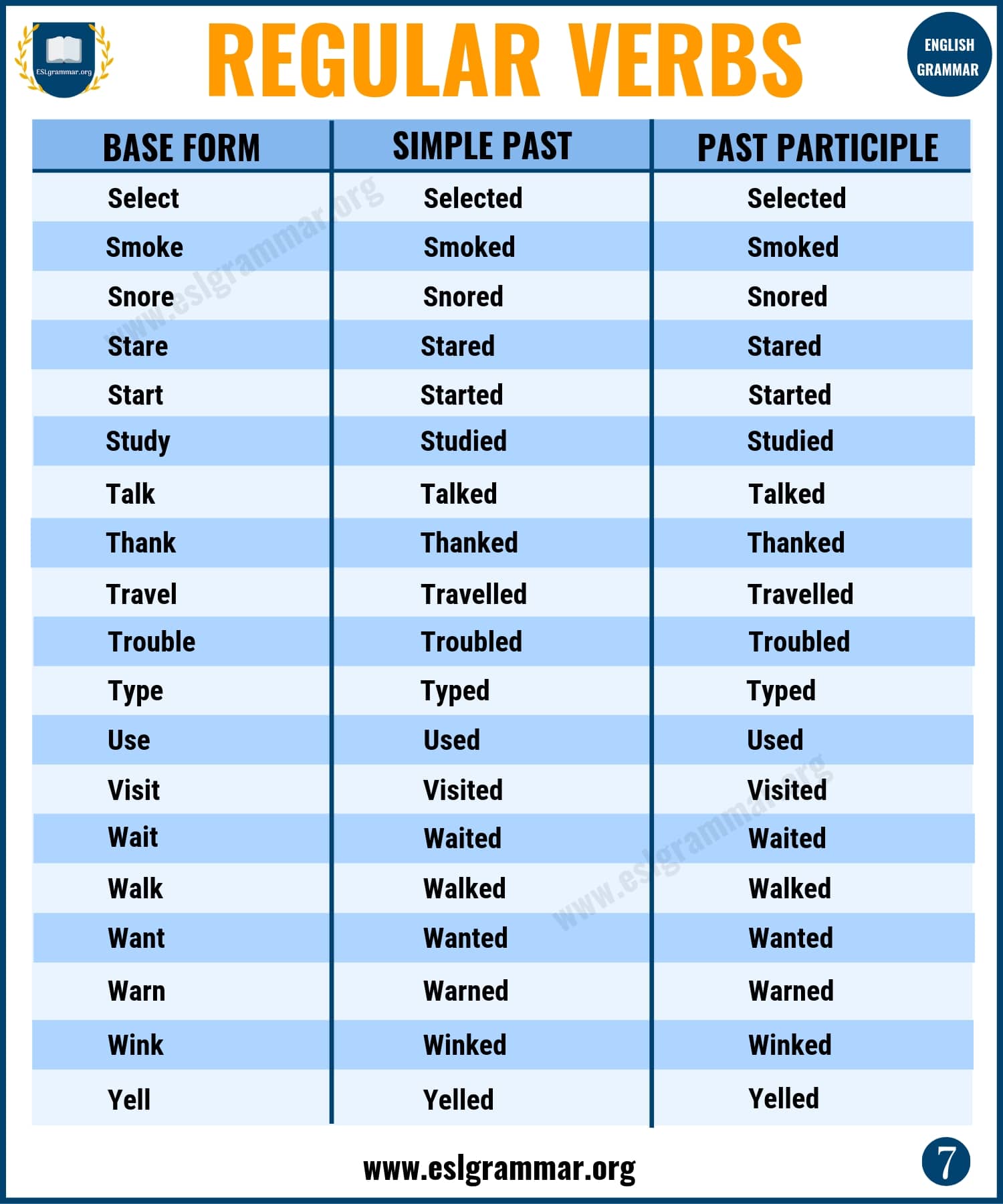
VERBS SIMPLE PAST AND PAST PARTICIPLE English Quizizz
Grammar Reference Irregular Verbs List Definition: Drive Irregular verb: To Drive Verb conjugation: Drive - Drove - Driven Meaning of 'To Drive' To operate and control a car or other vehicle Conjugation of verb 'Drive' Irregular Verbs Following a Similar Pattern Verbs like: Subscribe to Ad-Free Browsing

Past Tense Past Participle Base Form 1.draw2.meet 3.drink 4.drive 5
Drop. Dry. Eat. End. Enjoy. drove is the past tense of the word drive. driven is the past participle of the word drive. drive past form, verb forms, v1v2v3, Infinitive.
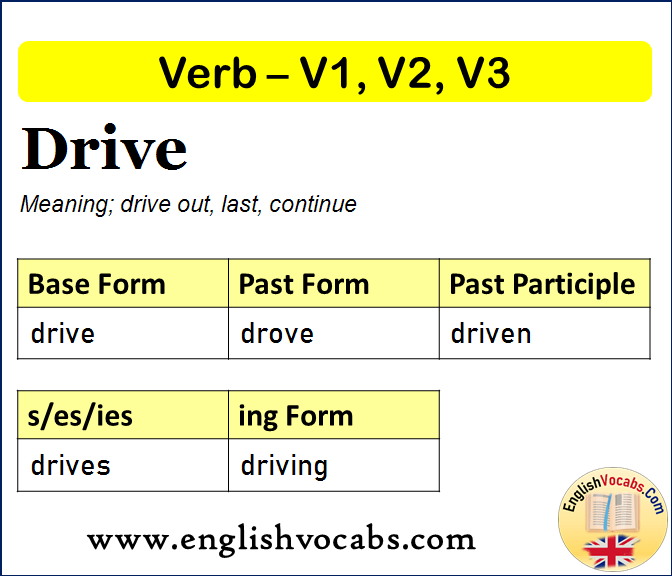
Verbs Archives Page 77 of 104 English Vocabs
Past Participle driven Present Participle driving Present I drive you drive he/she/it drives we drive you drive they drive Present Continuous I am driving you are driving he/she/it is driving we are driving you are driving they are driving Present Perfect

IRREGULAR VERBS Long list INFINITIVE PAST SIMPLE PAST
The simple past tense of drive (rhymes with hive) is drove (rhymes with trove). Driven is the past participle. Last updated on January 9th, 2024 at 08:11 am Which form of ' drive ' correctly completes the sentence? Contents What's the past tense of "drive"? Verb forms of 'drive' When to use drove vs. driven Is drive a regular or irregular verb?
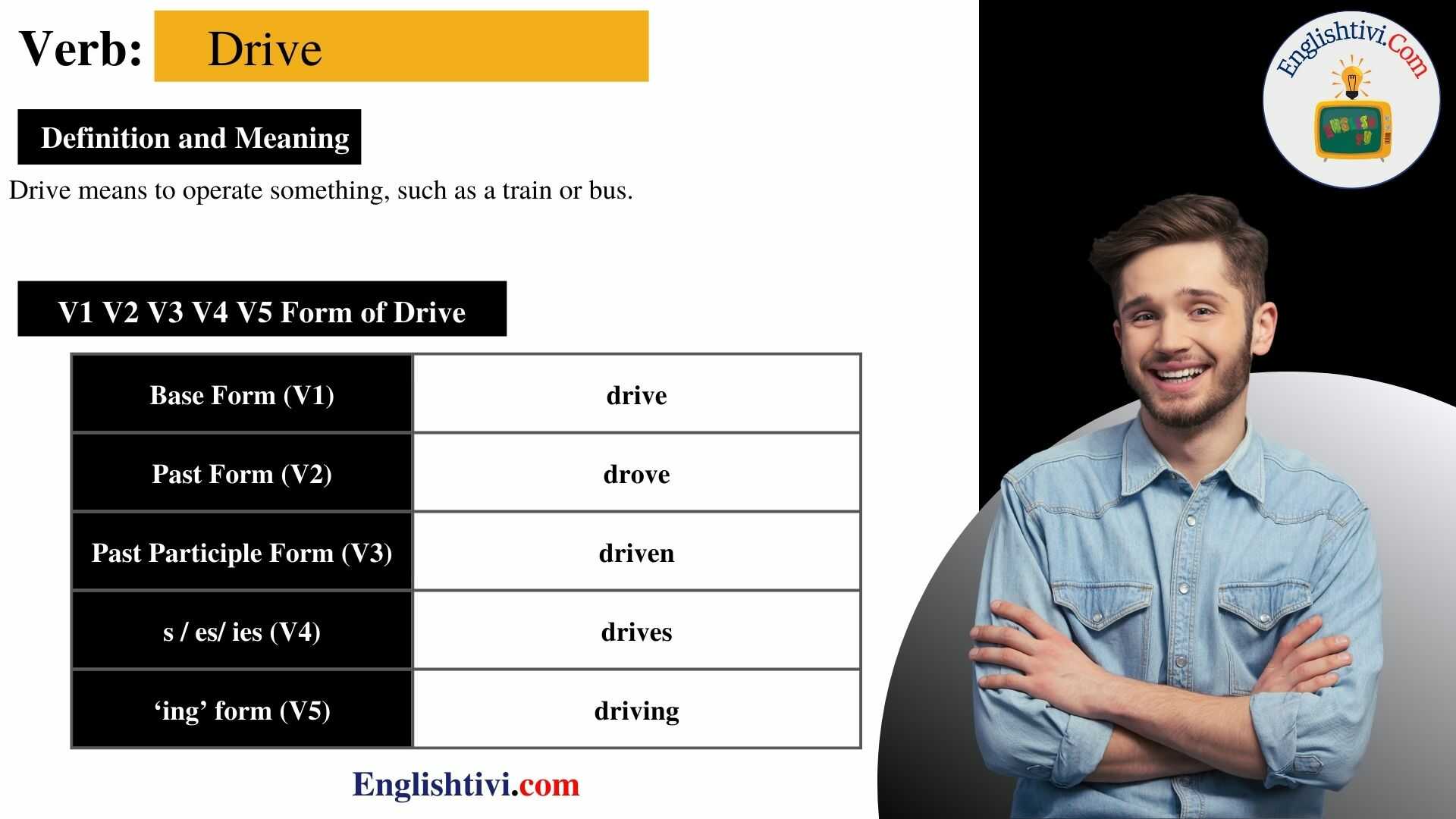
Drive V1 V2 V3 V4 V5 Base Form, Past Simple, Past Participle Form of
DRIVE Past Tense and Past Participle. The English verb "to drive" is an irregular verb that is used to express the action of transferring something to someone or something else. It undergoes changes in its base form, past tense, and past participle. The conjugation verb forms v1 v2 v3 v4 v5 "to drive" in different tenses is as follows:
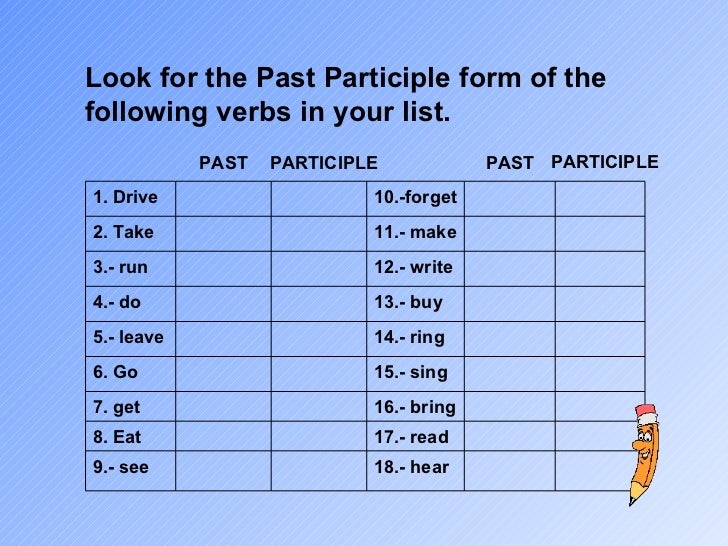
PRESENT PERFECT
This paper aims to provide a comprehensive morphological treatment of the forms of past participles and t-deverbals, and to that end it brings a wide range of synchronic and diachronic facts to bear on the problem.This section serves as a reference. It begins with a discussion of the Classical Latin inflectional paradigm with special attention to stem forms and the past participle in particular.
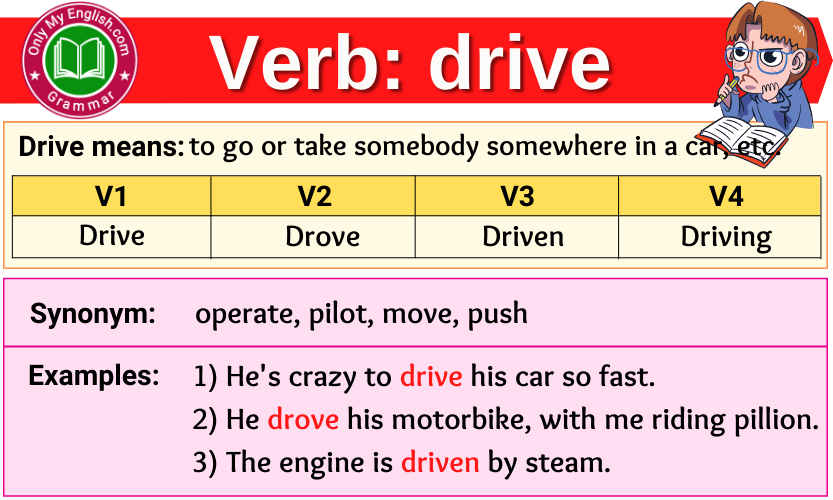
Drive Verb Forms Past Tense, Past Participle & V1V2V3 »
Past participle driven Model : drive Auxiliary : have, be Other forms: drive oneself / not drive Contractions Advertising Indicative Present I drive you drive he/she/it drives we drive you drive they drive Preterite I drove you drove he/she/it drove we drove you drove they drove Present continuous I am driving you are driving he/she/it is driving

Past Tense of Drive, Past Participle of Drive, V1 V2 V3 V4 V5 Form of
To Drive Conjugation; To Drive Infinitive: to drive Gerund: driving Past participle: driven Simple past: drove Irregular forms Auxilliary verb Spelling change Use contractions. Positive Negative. Indicative. Positive Negative. Present. I drive I drive: you drive you drive: he/she/it drives he/she/it drives:
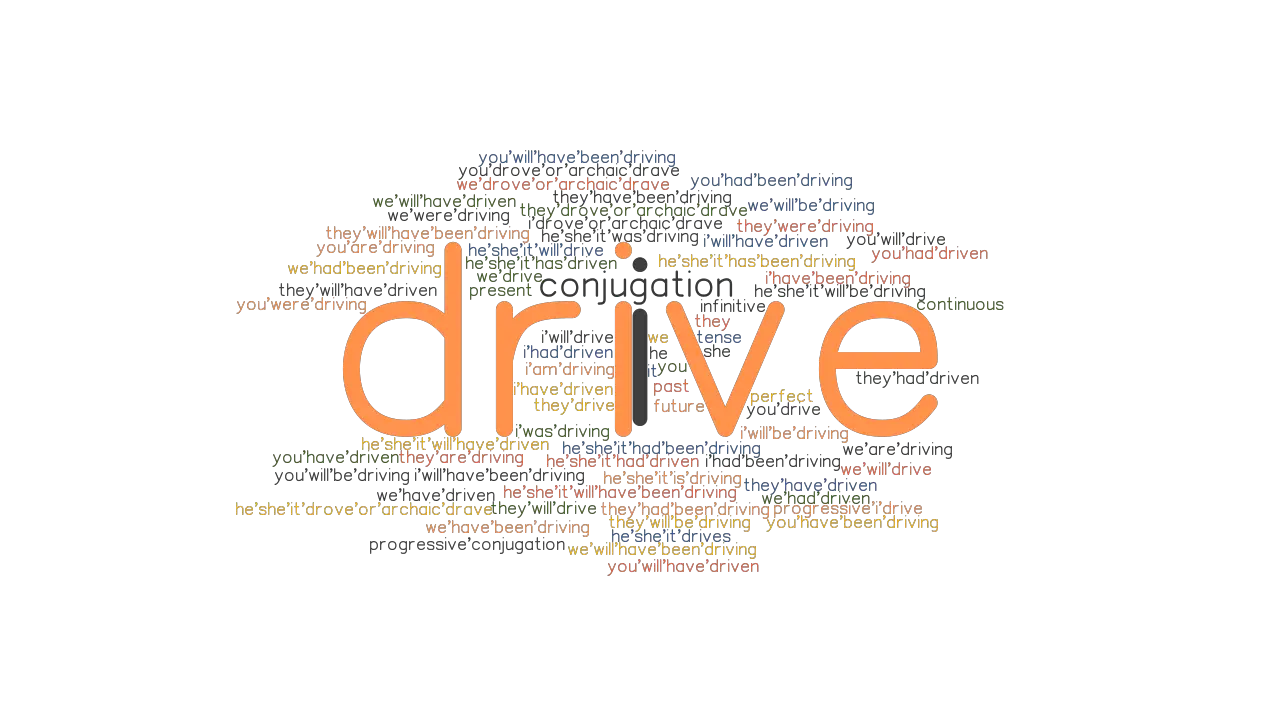
Drive Past Tense Verb Forms, Conjugate DRIVE
Conjugation of the verb Drive in all tenses: future, present and past. 🎮 Conjugation trainer for memorizing forms. LinguaBooster LB learning foreign languages.. Past Simple Past Participle Gerund. Simple tense . Present Simple Past Simple Future Simple. Continuous tense .